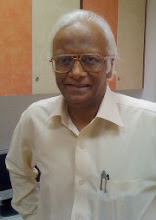Humpty Dumpty had a great fall;
All the King’s horses and all the King’s men,
Couldn’t put Humpty Dumpty together again.
China was truly playing the global leader and relished every moment at Copenhagen. The efficacy of Chinese diplomacy lies in knowing when to be friendly and when to be hostile. An unusual warmth developed between India and China notwithstanding Dalai Lama and Arunachal Pradesh, which has nothing to do with camaraderie. In the Belgian city, the two Asian giants felt helpless without each other in fighting the onslaught of the rich nations. In an article in the Guardian, the British climate secretary, Edward Miliband, accused China and other leftwing countries of trying to hijack the UN climate summit and "hold the world to ransom". Meanwhile, scientists and environmentalists were critical of rich countries which need to put up three times as much money and cut emissions drastically if they want to save the world from a climate catastrophe.
The self-styled conscience-keeper of climate change, Yvo de Boer, who is also the head of the committee for negotiations, commented:
The Marxists are using Climate Change to promote a Proletariat agricultural revolution;
The Maoists are using Climate Change to get us back to year zero;
The Corporates are using Climate Change to promote carbon trading;
The Governments are using Climate Change to tax us until the pips squeak;
The Vegans are using Climate Change to promote vegetarianism;
The One Worlders are using Climate Change to promote one government with a single point of tax and control;
The West is using Climate Change to dump pollution on the Third World;
The Eugenicist/Malthusians are using Climate Change to cull the population;
The Greens are being used by all of the above, and they don't realise it.
It’s one world, many universes!
And finally what will be remembered of the Copenhagen summit is the grim picture of the statues installed in front of the venue.

Tailpiece:
To preserve the Amazon, we need to stop eating meat. The president of the Brazilian Vegetarian Society, Ms Marly Winckler, says more than 80% of the Amazon's destruction is caused by cattle rearing.

















































 Some authors are more famous than their books, but some books overtake their authors. Books by Amartya Sen and Shashi Tharoor are read for what they are than for any other reason. Sen’s Idea of Justice and Tharoor’s Shadows across the Playing Field are a ‘must’ read.
Some authors are more famous than their books, but some books overtake their authors. Books by Amartya Sen and Shashi Tharoor are read for what they are than for any other reason. Sen’s Idea of Justice and Tharoor’s Shadows across the Playing Field are a ‘must’ read. The story of the turbulent cricketing relations between India and Pakistan has been told by Shashi Tharoor and Shaharyar Khan who make an instant cocktail of love of the game and diplomacy. Shashi Tharoor, whose comprehensive, entertaining and hard-hitting analysis of sixty years of cricketing history displays a Nehruvian commitment to secular values, which rejects sectarianism in sport in either country. Shaharyar Khan, a former Pakistan foreign secretary, writes compellingly of his pivotal role as team manager and then chairman of the Pakistan Cricket Control Board at a time when cricket was in the forefront of d’ tenet between the two countries.
The story of the turbulent cricketing relations between India and Pakistan has been told by Shashi Tharoor and Shaharyar Khan who make an instant cocktail of love of the game and diplomacy. Shashi Tharoor, whose comprehensive, entertaining and hard-hitting analysis of sixty years of cricketing history displays a Nehruvian commitment to secular values, which rejects sectarianism in sport in either country. Shaharyar Khan, a former Pakistan foreign secretary, writes compellingly of his pivotal role as team manager and then chairman of the Pakistan Cricket Control Board at a time when cricket was in the forefront of d’ tenet between the two countries. Jinnah simply refuses to die! When he has ardent fans like L K Advani and now Jaswant Singh, immortality is assured for Jinnah. Singh’s book is a roaring success in Pakistan and even in India for reasons of curiosity. Singh should privately thank Rajnath Singh and Advani for making his book a controversial sell.
Jinnah simply refuses to die! When he has ardent fans like L K Advani and now Jaswant Singh, immortality is assured for Jinnah. Singh’s book is a roaring success in Pakistan and even in India for reasons of curiosity. Singh should privately thank Rajnath Singh and Advani for making his book a controversial sell. 